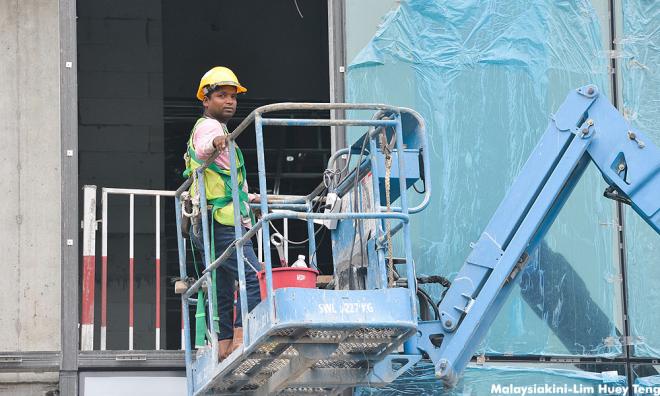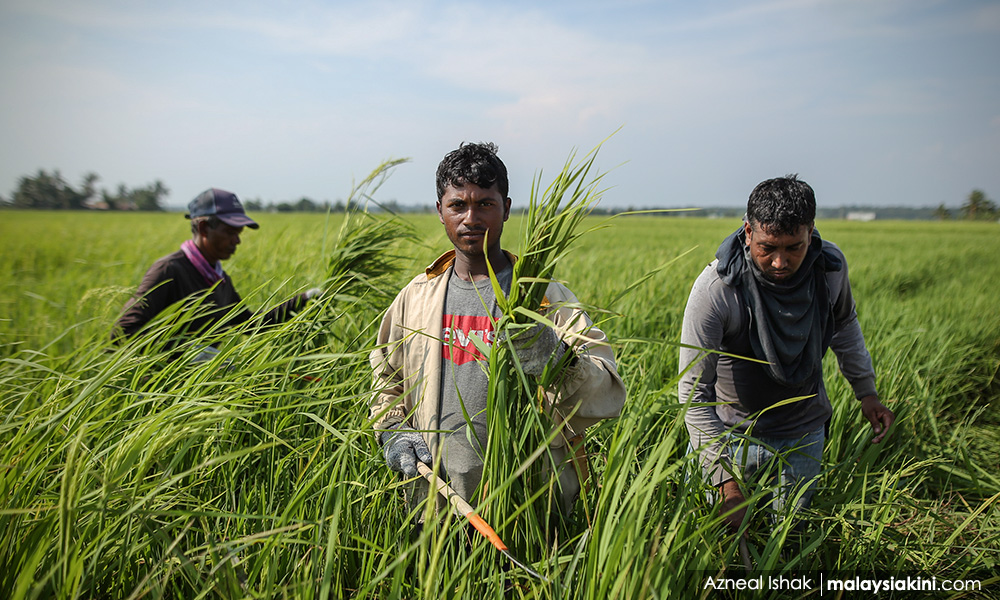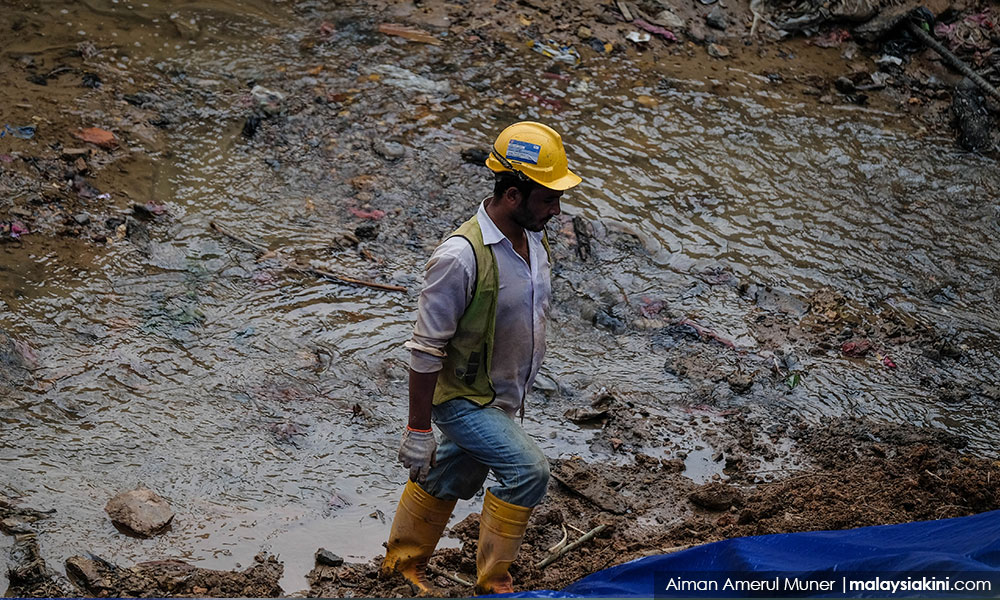
Foreign labour policies seem to be one area the government is starting to look into as well as planning policy reforms awakened by the unprecedented Covid-19 outbreak.
Prior to this, food security and education were given scrutiny.
According to Minister in the Prime Minister’s Department (Economy), Mustapa Mohamed, the government will relook foreign labour policies after issues faced by 2.3 million of them during the movement control order (MCO).
Migrant workers also became one of the latest concerns after a new cluster was detected at a construction site in Ampang.
In a broader view, Malaysia only allows foreign workers to be hired in several sectors namely manufacturing, construction, plantation, agriculture and services according to the Immigration Department. They are addressed as documented foreign workers.

At the same time, there are also undocumented foreign workers who are working illegally in these sectors and other sectors such as domestic help and hospitality.
According to experts, migrant workers account for about 15 percent to 30 percent of the labour force in Malaysia if the illegal migrant workers are included.
Why is there such a dependency?
For years, over-reliance on the low to semi-skilled migrant workers in certain sectors have been due to the lack of interest from the locals, perhaps because of the unattractive remunerations and social status.
So, the influx of migrants has been ongoing to make up for the labour shortage.
Many employers who are members of the Malaysian Employers Federation (MEF) and the Federation of Malaysian Manufacturers (FMM) also said foreign workers are normally recruited to save on the business costs as they are known to be cheap labour.
However, this particular action has led to employers having less incentives to go for automation, continuing on suppressing wages and limiting opportunities for the locals.
As much as the country is appreciative towards migrant workers who have helped to grow the economy for years, several measures need to be considered as the pandemic and MCO have resulted in a poor labour market with job losses and hiring freezes.
Bank Negara has projected the labour market to weaken considerably on the back of challenging economic conditions in the first half of this year, based on its latest monetary policy statement on May 5.
So how can Malaysia reduce the number of foreign workers in the medium to long term horizon to make room for Malaysians who are vulnerable in the job market?
One possible way to go about it is for the government to implement an amnesty programme for a few months to repatriate the undocumented migrants – those who overstayed and do not possess valid travel documents, similar to the one introduced in 2019 known as “Back for Good” (B4G).
In 2019, the programme was conditional upon the workers paying a fine of RM700 and they had to present the flight tickets before heading back.
Once they are back in their country of origin, they are blacklisted from returning.
Perhaps this time around, the programme could be implemented without any condition that would hinder the likelihood of them flying back to their home countries such as no imposition of fines or if such is not possible, a minimum amount of fine can be imposed.
We should not give up on the moral responsibility of the migrant workers despite aiming to control their population in our country.
Nonetheless, sending illegal immigrants back to their home country is only one part of the story.
The other part that can be challenging to handle is to replace the vacancies with the locals especially in the construction and agriculture sectors known as the 3D jobs (dangerous, dirty and difficult).

So, what can be done to handle this potential challenge?
For the low-skilled jobs in the construction industry, given that most states in Malaysia are already over-developed with an excess supply of houses and office buildings and the new norm has initiated the need to work from home, the focus of this particular industry should be shifted to promote higher-skilled jobs.
To support the shift in jobs, subsidies to upskill the workforce can be allocated to companies to conduct training programmes.
In the agricultural sector, innovation should be the way forward to increase productivity and profitability that could help attract locals to the ageing industry as incomes would be uplifted with the reduced reliance on foreign labour.
Coupled with innovation, relevant education needs to be provided to the youth, thus and agricultural-related courses and programmes at universities need to be reassessed to be in line with the advancement in the agricultural sector.
Attractive incentives to adopt technology in the agricultural sector such as research and development grants or subsidies should also be provided to farmers.
But of course, these efforts need to be in tandem with more land provision by reviewing the allocation of land rights to the farmers.
The issue of migrant worker inflow has been a longstanding issue in Malaysia as it holds back the encouragement for employers to automate due to higher costs.
Perhaps the hit in the labour market due to the pandemic could be the next major reason to try to control the hiring of foreign workers in some sectors.
Looking back at history, Malaysia had to send back 800,000 migrant workers and 40,000 Malaysians lost their jobs during the Asian Financial Crisis in 1997 to 1998.
Despite the government’s efforts to correct or adjust labour policies in supporting vulnerable Malaysians to get jobs, society’s mindset also needs to be changed.
Tough times such as the current environment needs the rakyat who are open-minded to the nobility of any work in order to survive.
Therefore, even blue-collar jobs need to be respected and valued.
Unless the mindset changes, employers would be left with no choice but to continue relying on foreign workers in order to fulfill economic demand.
NUR SOFEA HASMIRA AZAHAR is a research analyst at EMIR Research, a think tank focused on strategic policy recommendations. - Mkini



No comments:
Post a Comment
Note: Only a member of this blog may post a comment.